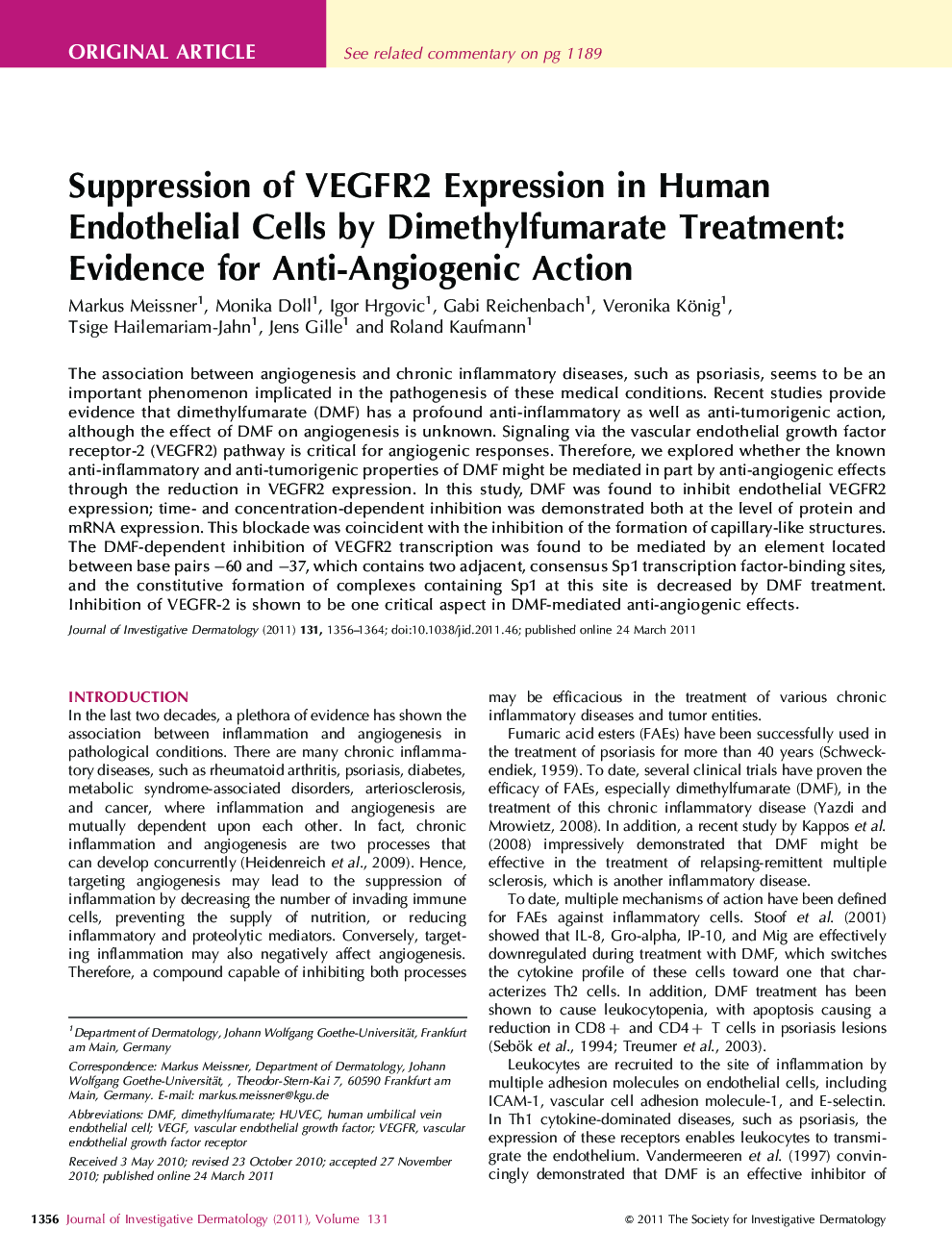| کد مقاله | کد نشریه | سال انتشار | مقاله انگلیسی | نسخه تمام متن |
|---|---|---|---|---|
| 3215686 | 1203539 | 2011 | 9 صفحه PDF | دانلود رایگان |

The association between angiogenesis and chronic inflammatory diseases, such as psoriasis, seems to be an important phenomenon implicated in the pathogenesis of these medical conditions. Recent studies provide evidence that dimethylfumarate (DMF) has a profound anti-inflammatory as well as anti-tumorigenic action, although the effect of DMF on angiogenesis is unknown. Signaling via the vascular endothelial growth factor receptor-2 (VEGFR2) pathway is critical for angiogenic responses. Therefore, we explored whether the known anti-inflammatory and anti-tumorigenic properties of DMF might be mediated in part by anti-angiogenic effects through the reduction in VEGFR2 expression. In this study, DMF was found to inhibit endothelial VEGFR2 expression; time- and concentration-dependent inhibition was demonstrated both at the level of protein and mRNA expression. This blockade was coincident with the inhibition of the formation of capillary-like structures. The DMF-dependent inhibition of VEGFR2 transcription was found to be mediated by an element located between base pairs -60 and -37, which contains two adjacent, consensus Sp1 transcription factor-binding sites, and the constitutive formation of complexes containing Sp1 at this site is decreased by DMF treatment. Inhibition of VEGFR-2 is shown to be one critical aspect in DMF-mediated anti-angiogenic effects.
Journal: Journal of Investigative Dermatology - Volume 131, Issue 6, June 2011, Pages 1356–1364